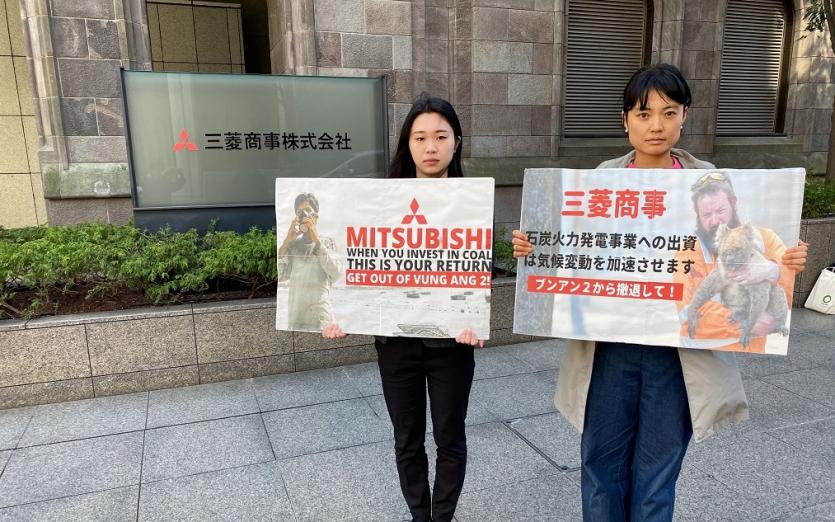Global Protests Call on Mitsubishi Corporation to Stop Investing in Coal Power. Climate activists around the world rally in front of Mitsubishi to stop the Vung Ang 2 coal power plant. Photo:NoCoalJapan.org
Anger Among Campaigners Over Japan’s Climate Action Plan
By Patryk Krych | The World Daily MARCH 31st 2020
Japan has become the world’s first major country to release a Climate Change action plan, in accordance with the Paris agreement. However, climate campaigners have deemed the plan unfit, in a bout of fury.
The Climate Action Tracker analysis has deemed Japan’s action plan to lower its emissions by a total of targeted 26% by the year 2030 as “highly insufficient”. Having been announced on Monday morning, the action plan was described as its “nationally determined contribution” (NDC). However, much dismay also comes from the fact that the commitments remain greatly unchanged to the ones announced by Japan back in 2015, during the initial Paris accord.
Campaigners argue that if every other country had equivalent targets to that of Japan, then global temperatures would exceed over 3C, also noted by the Climate Action Tracker. The campaigners have expressed further concern over the timing of the announcement – coming ahead of the vital United Nation (UN) climate talks that will take place later this year, and during the COVID-19 pandemic crisis. The unease comes mainly from fears that the pandemic would prompt countries to lower their emission reduction targets, under the excuse of having more immediate commitments to attend to.
Global climate lead at Christian Aid, Kat Kramer, spoke on the Japanese action plan and said that “The fact they are smuggling it out during a global pandemic when it will avoid the scrutiny it deserves is shameful.”
Japan’s plan was also labelled disappointing by Laurence Tubiana, chief executive of the European Climate Foundation and the French architect of the Paris agreement. He said that it juxtaposed greatly with the efforts of the county’s economic rivals, which include the European Union, United Kingdom, China and South Korea, which according to her were all gradually moving towards a low-carbon economy.
“At one of the most challenging times of recent memory, we need bolder, mutually reinforcing plans that protect our societies from the global risks we all face.”
Worldwide temperatures rising over 3C would cause major changes on a global scale. As such, newer commitments were deemed necessary in order to reach the goals set during the Paris accords. The commitments are mainly purposed to holding off temperature increase, to no more than 2C, or (as would be far more ideal) an even lower 1.5C, above pre-industrial levels. The Earth’s temperature rising by even a single degree would change climate, in a manner that wouldn’t be easy to amend.
After the infamous accident at the Fukushima nuclear plant that occurred during an Earthquake in 2011, Japan had proceeded to shut down the vast majority of its numerous nuclear reactors. Due to this, it is one among the few developed countries that is still often building new coal-fired power stations, as an alternate source. As the world’s third biggest economy, it requires a lot of power. However, this also contributes to its position as the fifth greatest producer of carbon emissions in the world.
Kimiko Hirata, international director of the Kiko Network, a climate group in Japan said that “Japan should not slow down climate actions even amid the Covid-19 global fights, and must revisit and strengthen this plan swiftly in order to be in line with the Paris agreement.”
She went on to say that the country’s prime minister, Shinzo Abe, appeared content “to settle for a low target and policies to continue to fund coal, which are firmly taking us down the path to economic and environmental ruin.”
By Patryk Krych | © The World Daily 2020






